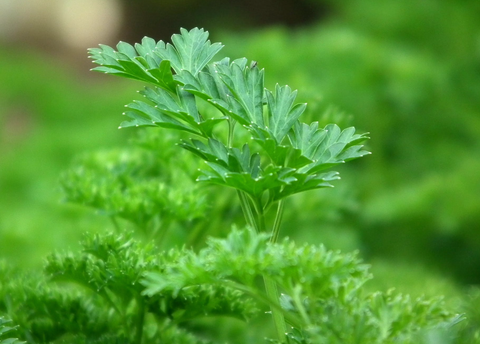The benefits of adding herbs into your dog’s diet
Benefits of adding herbs for your dog
Many herbs that you use to cook in your kitchen can have tremendous impacts on your furbaby’s health and wellbeing when given in small amounts. In this post we will be discussing the following herbs for your dog that can be included into their diet:
- Basil
- Oregano
- Peppermint
- Parsley
- Rosemary
These herbs are safe and can provide benefits like breath freshening, stomach-soothing and even cancer-fighting properties.
5 herbs to include into your pet’s diet
Herb #1: Basil
Sprinkle some basil atop your fur-babies dinner the next time you cook. This great leafy herb has antimicrobial, antiviral, antioxidant and anti-inflammatory properties. Basil is nutrition-packed and has properties that can help prevent many types of illnesses. This includes bacterial infections, viruses and cancer. Basil also has calming-effects, and can help ease arthritis pain.

Herb #2: Oregano
Packed with antioxidants, flavonoids, anti-fungal and even antimicrobial properties. This herb is well-known to aid gut health, and can help with diarrhoea, gas and digestive problems. There are also oregano drops and oils available for pets, that are especially great for their anti-fungal properties. Just keep in mind that these drops/oils are more concentrated, so keep the dosages small.

Herb #3: Peppermint
Fresh and minty kisses from your fur-bestie – yes please! This aromatic herb will re-freshen your pal’s breath instantly, while also reducing gas, soothing upset stomachs and even help with travel sickness. Although there is no reported toxicity of giving peppermint to dogs, avoid giving very high doses of peppermint as it may result in liver or kidney problems.

Herb #4: Parsley
Not only a great source of vitamins, flavonoids and antioxidants, parsley also contains lycopene and carotenes. These compounds can improve heart, skin and eye health, and lower the risk of certain types of cancer. It can even freshen bad breath due to its antimicrobial properties.
Note: Although curly-leafed parsley commonly used as a garnish on plates is safe for pets, do not feed them “Spring parsley.” This member of carrot family that resembles parsley can be toxic to pets in large amounts.

Herb #5: Rosemary
Rosemary in its whole powdered form is high in antioxidants, iron, calcium, and Vitamin B6. In addition, this herb can help support gut health, fight pathogens due to its antimicrobial properties, and promote cardiovascular health.

What quantity of herbs should you add into your dog's diet?
Sprinkle a small amount of freshly chopped or dry herb into your pet’s meal. When given moderately, your dog can enjoy the amazing nutritional and health benefits provided by these herbs.
But like most things, too much of a good thing can be harmful. Avoid giving excessive amounts of herbs as it can cause diarrhoea, vomiting, upset stomach or even depression.
Always start off with a very small dosage to see if it agrees with your pooch’s tummy. If you are unsure, ask your veterinarian for the best serving size of herbs for your dog.
If you want to save yourself the hassle, we have worked with veterinarians to provide you with a range of delicious biscuits that include herbs and other nutritious ingredients.
We want the best for your furbaby’s health, and it is for this reason we add super-herbs into our biscuits to ensure they can reap these benefits. This includes our Lamb treats (containing peppermint) biscuits.
Did you enjoy reading this post? Help us spread the word by sharing with a friend who might enjoy it.


